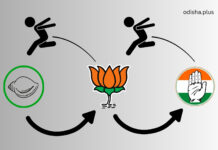Bhaskar Parichha
Exactly a year ago, Prime Minister Narendra Modi announced a 21-day nationwide lockdown to check the spread of Covid-19 in the country. That was the most severe and largest restrictions on the movement of people seen anywhere in the world. The lockdown confined over a billion people within their homes, shut down businesses and left lakhs of migrant workers stranded in cities with no means to return to their homes.
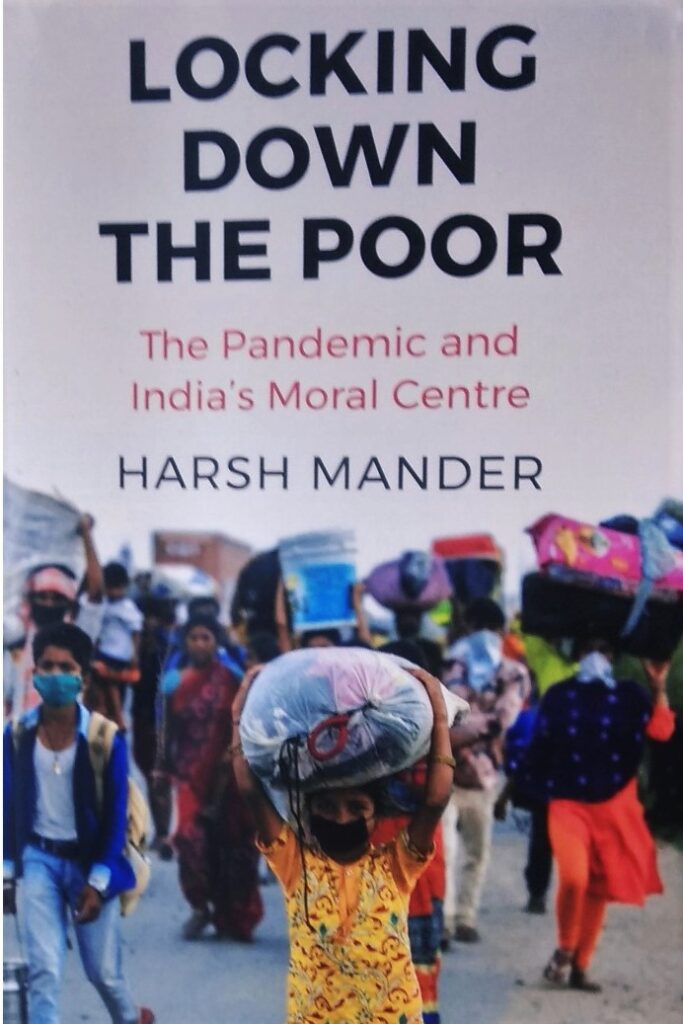
Imposing lockdown resulted in a big humanitarian crisis as lakhs of migrant workers were left stranded in metro cities without food, money and shelter. A near-total ban on public transport forced these hapless migrants to take the road on foot. Streams of migrant workers poured out of cities desperate to reach their native villages. The government’s hasty implementation of the lockdown was severely criticized for its lack of planning and heavy handedness.
Although many books have been written on the migrant crisis post-lockdown, this is by far the exacting one. ‘Locking Down the Poor – The Pandemic and India’s Moral Centre’ by Harsh Mander is a representative commentary of the crisis and the irrationalities surrounding it.
One of India’s most trusted and courageous social justice and human rights activists, Harsh Mander is the author of several acclaimed books on contemporary India : Looking Away: Inequality, Prejudice and Indifference in New India and Ash in the Belly: India’s Unfinished Battle Against Hunger.
Says the blurb , ‘In early 2020 the first cases of Covid-19 infection were confirmed in India, and on 24 March the country’s prime minister announced a nationwide lockdown, giving the population of over 1.3 billion just four hours’ notice. Within days, it became evident that India had plunged into its biggest humanitarian crisis since Partition.’ In this powerful book, Harsh Mander shows us how grave this crisis was and continues to be, and why it is the direct consequence of public policy choices that the Indian government made, particularly of imposing the world’s longest and most stringent lockdown, with the smallest relief package. The Indian state abandoned its poor and marginalized, even as it destroyed their livelihoods and pushed them to the brink of starvation.’

Combining ground reports with hard data, Mander argues with clarity and passion that India is in the middle of a humanitarian catastrophe, the effects of which will be felt for decades.
In a little more than two hundred pages, Mander brings up voices of out-of-work daily-wage and informal workers, the homeless and the destitute, all overwhelmed by hunger and dread. From the highways and overcrowded quarantine centers, he brings stories of migrant workers who walked hundreds of kilometers to their villages or were prevented from doing so and detained.
While laying bare the criminal callousness at the heart of a strategy that forced people to stay indoors in a country where tens of crores live in congested shanties or single rooms with no possibility of physical distancing, no toilets and no running water, the book collates critical facts from this period, along with many individual stories, showing how state institutions stripped India’s poor of their political rights and dignity, and emptied the republic of any moral content.
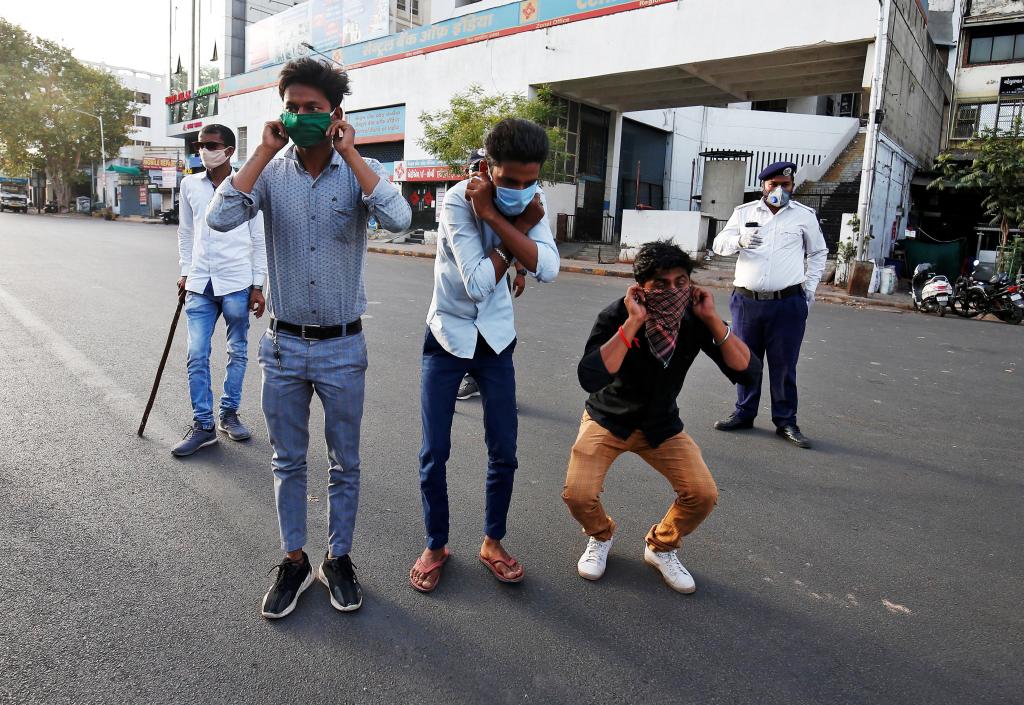
Sample this: ‘Twenty-five-year-old Kundan cycled 1,100 kilometers to reach Patna from Panipat. He survived not only exhaustion and hunger but also intimidation and violence. After three days on the road, he was stopped on an expressway by the police. ‘You have money for cycles and not for food?’ they said as they beat him. Salman Ravi, a journalist with BBC Hindi, found a group of laborers in Delhi who had been beaten by the police when they stopped by a road to eat the food they were carrying. They had been walking and cycling from Ambala for six days already, returning to their villages in Madhya Pradesh. One man with two little children and the family’s bedding on an old bicycle broke down as he spoke of what had been done to them.’
Elsewhere he writes: ‘The central and state governments offered no relief of any kind to the workers on the road. In fact, they did the opposite. When some senior IAS officers in Delhi organized buses for migrants who wanted to return, they were reprimanded, suspended and removed from their postings. Many migrant workers reported being beaten like fugitives from the law by the police. In mid-May, more than 500 migrant laborers from Bihar, Jharkhand, Odisha and other states were assaulted by police in Vijayawada. They were returning from establishments that had shut down in Tamil Nadu and Andhra Pradesh when they were stopped on the highway by the Andhra police and told to go back. When the workers refused, the police resorted to a vicious lathi charge.’
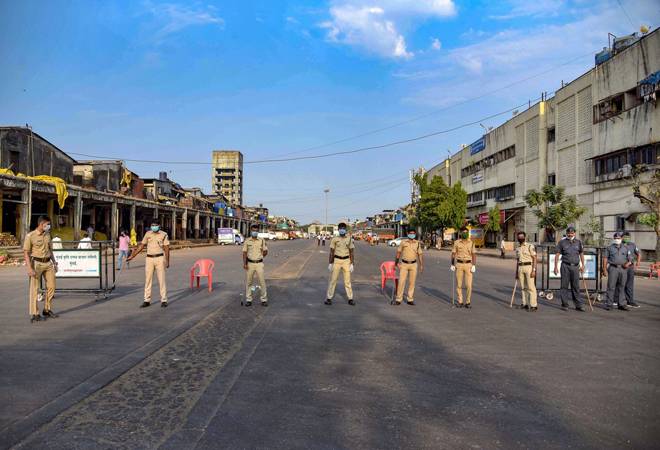
For much of the book, Mander grapples with the problems of systematic exclusions of the poor and the government’s wilful negligence of duty. The administration can hardly claim it was unaware of the ground reality, he argues, since a huge number were already living in abject hunger before covid-19 struck. He says, throwing these lives into jeopardy by imposing a lockdown without sufficient warning amounted to a criminal abdication of responsibility.
Mander also doesn’t mince words about the prime minister’s messaging in the pandemic’s wake. In his televised addresses to the nation, Modi had asked citizens to stay indoors, wash their hands frequently and practise “social distancing”. Subsequently, his requests included banging utensils from the balconies to express appreciation for the essential workers, or lighting diyas and candles.
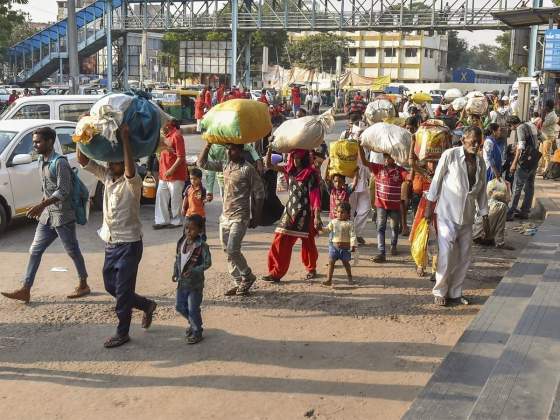
Mander concludes by saying that : ‘Our only hope lies in genuine democracy and unwavering solidarity–in rebuilding our broken country into one which is more compassionate, more just and more equal.’ The book is an important chronicle of the effects of the pandemic and the consequent lockdown, and makes for indispensable reading.
Locking Down the Poor
Harsh Mander
Speaking Tiger Books
New Delhi
2021


